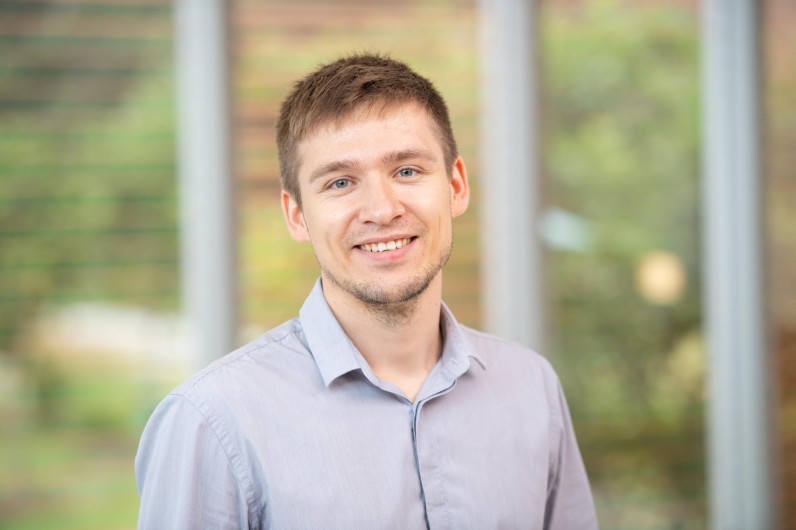
T-cells are a vital component of the immune system, responsible for detecting and attacking harmful invaders like viruses or mutated cancer cells. T-cell research plays a critical role in developing medical treatments that directly impact people's health and well-being, especially in the fight against diseases like cancer, viral infections, and autoimmune disorders.
Unfortunately, T-cell research is like trying to untangle a dense and intricate web, where each thread represents the complex layers of the immune system. At present, that research requires careful, manual effort along with specialized tools to unravel the web without breaking it. Likewise, researchers must rely on highly trained experts and tedious processes. Those processes not only slow progress but also increase the risk of missteps. Like using a larger net to catch a small fish, they often require larger biosamples, which makes the work less efficient and more prone to error.
To maximize the benefits of T-cell research, 100XBIO founder Sergei Pustylnikov has developed an advanced technology for detecting antigen-specific T-cell activation that will vastly change and improve immunology research.
At the heart of the company's innovation lies a solution that automates traditionally labor-intensive processes in T-cell research, delivering a level of precision and efficiency never before achieved. Pustylnikov's invention offers a method that generates up to 100 times more data per biosample, all while reducing costs and minimizing the need for large samples. With T-cell research critical to breakthroughs in cancer therapies, vaccines, and immune-related diseases, 100XBIO's platform is unlocking new possibilities for biotech companies, pharmaceutical firms, and academic labs.
A Founder's Vision Fueled by Experience
Pustylnikov has been working towards the development of 100XBIO for the past 15 years. Based on his previous research, including a postdoc at the University of Pennsylvania, he developed a complex understanding of the limitations and challenges that currently exist in T-cell research.
He struck gold when he became aware that the wasteful nature of current methods could be eliminated with better technology. "Instead of wasting those cells, we can utilize them," Pustylnikov recalls, referring to his innovative idea of retesting cells rather than discarding them after a single use. That finding laid the foundation for 100XBIO, which not only saves resources but also turns a single biosample into a wealth of data that pushes the possibility of T-cell research.
"Immunology research often requires experts to perform tasks that are time-consuming and prone to human error. These problems lead to higher costs, wasted samples, and delays in discoveries," explains Pustylnikov. His platform automates many parts of the process, using robots to run multiple experiments on one sample. This reduces mistakes and increases data accuracy. What used to take days of manual work can now be done much faster, with better results.
In addition, traditional T-cell research samples are split to test different targets. This wastes samples and leads to inefficiency. 100XBIO's technology changes this by allowing multiple T-cell targets to be tested using the same sample. This means fewer cells are wasted, and researchers can make better use of expensive biosamples. For example, a sample set that would normally cost $300,000 can now be used as a $30,000 resource, supporting up to 100 experiments. This approach saves money, especially for rare or costly clinical trial samples, or unlocks the types of research that were cost-prohibitive.
100XBIO has a working automated prototype. This first version allows researchers to get large amounts of data from smaller samples. The company is also working on improvements. "We plan to upgrade imaging to handle six plates at a time, instead of just one. The robotic liquid systems will also be replaced by robotic arms, making research easier and reducing the need for consumables." Pustylnikov adds, "These upgrades will improve efficiency and lower costs for users, making the platform more attractive to a wide range of markets."
100XBIO's Market Potential
Even better, 100XBIO's impact goes beyond T-cell research. The company is targeting several significant markets, including a $3 billion T-cell research sector, a $5 billion lab automation market, and a $30 billion diagnostics systems market. "Our platform's ability to improve efficiency in these areas opens up vast opportunities for growth, particularly in cancer therapies and immune-based diagnostics, industries that are already seeing rapid expansion," Pustylnikov explains.
100XBIO's technology is protected by two patents, covering assay methods and rare event detection, which helps reduce competition. Further proof of the company's viability is that it has raised $200,000 in pre-seed funding and aims to raise another $250,000.
100XBIO is solving a big problem in immunology. The company is making research more scalable and cost-effective. As Pustylnikov expands partnerships, enhances products, and enters new markets, his platform will play a key role in personalized medicine and precision therapies.
To learn more, visit www.100xbio.com.







Join the Conversation